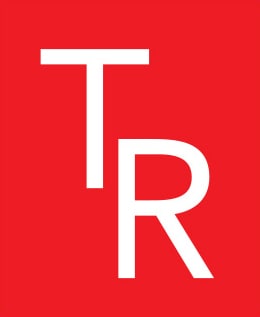Hiring the best people for your organization is a huge challenge in Seattle’s white hot market – hiring for top sales roles is even harder. Top sales performers are in huge demand across the board, from the biggest tech companies to the smallest, scrappiest startups. And unlike some other roles, it’s very hard to determine in advance if someone will be successful at a particular sales role. A hiring manager might be able to look at a software engineer’s experience in a previous role and be fairly certain those skills will translate to the new role. But not all sales roles are the same, and differences in industries, corporate cultures and products will all throw in curve balls that make hiring a complicated process. Sales people generally will interview well – they are in the business of selling after all – but it takes an experienced sales recruiter with deep industry knowledge to be able to ask the right questions and suss out whether a sales pro is right for a certain position.
Patrick Hearon, the VP of Sales at Seattle-based LiveStories, understands these challenges. The first one is of course, identifying potential candidates. “This market is incredibly competitive when it comes to recruiting and hiring top talent right now,” he says. “So finding the right people and being able to convince them to leave what they are doing to join our teams at the allocated budget is the biggest current challenge we are facing.” Indeed, passive candidate sourcing is one thing that you’d need an experienced recruiter for right now. Top performers are well-compensated and engaged in current roles. Tempting them with a new opportunity requires finesse.
Matt Witt, a Talent Associate at Madrona Venture Group, agrees. “These folks are gainfully employed and thriving. They’re not applying to open reqs or replying to an InMail on LinkedIn,” he says. “So the challenge is, how do you extract top sales talent from their current company? A compelling product, technology, mission or comp plan can help, but the reality is, to attract top talent all of these things are necessary along with a great company culture to boot.”
Once you’ve sourced potential candidates, you need discerning screening. Pros like Witt and Hearon know what they are looking for. “The number one variable I’m looking for is the ability to ‘own the outcome’. Figuring out a way to hit targets and drive results when the chips are down and the formula isn’t clear.” This is the Holy Grail for hiring for sales – but hard to determine without really understanding the sales process and asking the right questions.
Witt also knows what he’s looking for. “The first thing I look for in a sales leader is can they be strategic? Do they have a vision to grow revenue 2x, 5x or 10x and ultimately can they execute on that vision?” he states. But there is more: “Next, I look for leadership capabilities. Can this person recruit and grow the team? Can this person motivate, coach, mentor, build trust and drive performance for their team?”
It’s easy to make mistakes in hiring that are costly for your organization. Hiring talent that doesn’t stick around is an expensive practice. One mistake hiring managers often make is not connecting the value of the company with the drivers that motivate the sales talent. For example, if the sales talent is motivated by security or reliability over a fast growing but ever-changing organization than the engagement is set up for failure. Another mistake: “If the sales talent is singularly money motivated, but the company only pays median range for the market but offers additional perks like growth potential and flexible time off, then it’s not a good fit,” says Hearon.
Witt agrees. “The biggest mistake a recruiter can make when sourcing sales talent is misalignment with the hiring manager and not fully understanding the spec. It’s important to understand the business, ask the right questions and know all the details about your company.”
In today’s competitive market for sales talent, you need professionals who can find the right people with the right skills. Recruiters need to understand an organization’s selling motion, sales cycle, average deal size, target customer (enterprise vs SMB), and the product or services before sourcing and recruiting top talent for today’s most competitive companies. Then they have to drill down on the right attributes and motivators of the talent. TalentReach is proud to be helping match our customers and candidates to the right roles so that they are focused on breaking sales goals, not getting stuck in the constant hiring churn of not quite right candidates.



Recent Comments